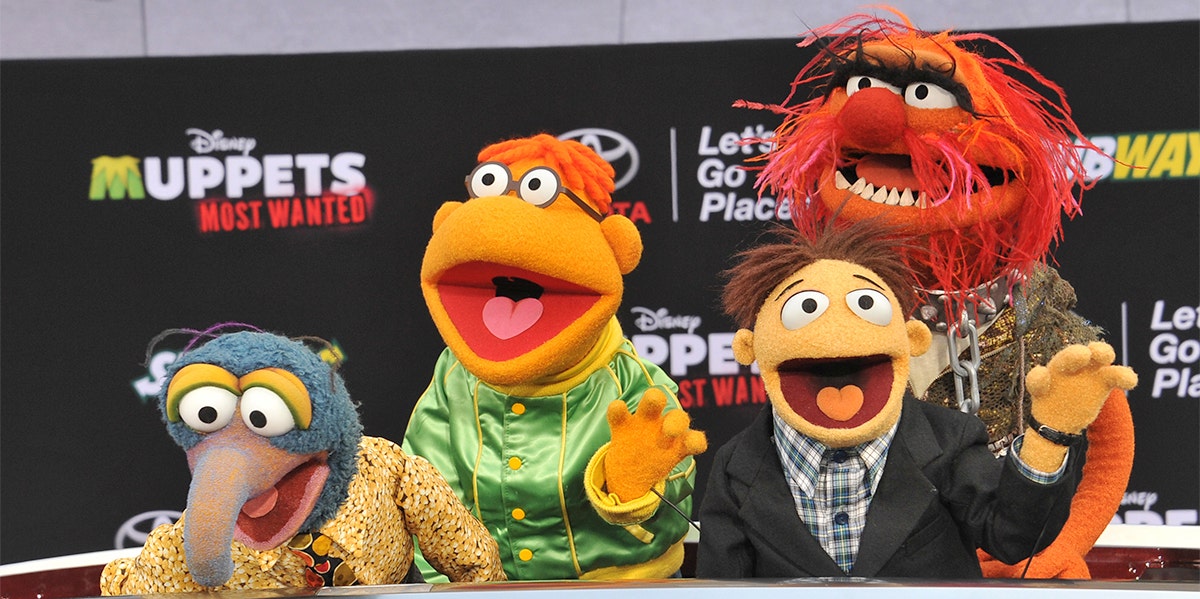'Sesame Street' Introduces Black Muppets To Help Teach Our Kids About Racism
Meet Elijah and Wesley Walker.
 Featureflash Photo Agency / Shutterstock
Featureflash Photo Agency / Shutterstock There were lots of mixed emotions when Black Muppets were introduced to the “Sesame Street” cast.
The non-profit organization behind “Sesame Street” called Sesame Workshop, is working to create a series that has a “commitment to racial justice.” The new series was released on Tuesday, March 23 as part of its digital content series called “The ABCs of Racial Literacy.”
This is a big step in educating the children of the future on racial justice and equality. Let's take a deeper look into the relationship between Muppets and race.
Who are the new Muppets and what do they mean for society?
Elijah Walker, 35, and his son Wesley, 5, were introduced with the hope to “provide families with the tools they need to build racial literacy.”
The Walkers and the new series are part of a bigger initiative called “Coming Together,” will openly discuss and explain the idea of race and racism to their young audience.
The addition of these Muppets to the show and the creation of the series “The ABCs of Racial Literacy,” comes on the heels of America's racial unrest that included the murder of George Floyd almost a year ago.
“After last summer with the racial unrest that happened and the murder of George Floyd, we collectively as an organization decided that the only way that we could go about dismantling racism was by being bold and explicit,” Kay Wilson Stallings said, the executive vice president of creative and production for Sesame Workshop.
The show hit the ground running as it introduced Elmo to the Walkers. They had a conversation initiated by Elmo, who asked why their skin color is brown, the same way a young child might phrase the question.
"The color of one's skin is an important part of who we are, but we should all know that it's okay that we all look different in so very many ways,” Elijah explained.
What is the show's history of inclusion?
“Sesame Street” is no stranger to adding characters with real-life representations and issues to educate their audiences.
They have introduced Muppets with autism with others affected by hunger and addiction. There’s been a variety of characters of multiple ethnicities with many of them serving as recurring characters.
In its 52-year-history, the first Black Muppet was introduced in 1970. The Muppet, Roosevelt Franklin, was popular but was criticized by many for the stereotypes he portrayed. In 2002, they introduced Kami, who was an HIV-positive Muppet, with the intent of reducing the stigma around the disease.
In 2010, they introduced Gabrielle. She was a Black Muppet who sang a popular song on the show, “I Love My Hair,” that helped girls be confident in their hair no matter how different it may be from others.
What makes Elijah and his son, Wesley, unique and a big step forward in Black representation is that they're more realistic.
Unlike other Muppets who have orange, red and blue skin; Elijah and Wesley are straightforward versions of what Muppets with black skin might be expected to look like.
What’s next for “Sesame Street”?
“Racial justice is now part of our DNA,” Wilson Stallings said. “You can’t unsee.”
Their new content that focuses on racial justice is important in educating the youth. Many people on social media, however, asked where the White Muppets are, as they feel it’s important to teach race and racial justice with multiple races.
Regardless of how many more characters they introduce to the iconic show, there is no question that the introduction of Elijah and Wesley Walker is a big step forward for teaching future generations about race and how we are all equal, no matter what we look like or where we come from.
Tomás Diniz Santos is a writer living in Orlando, Florida. He covers news, entertainment, and pop-culture topics.

